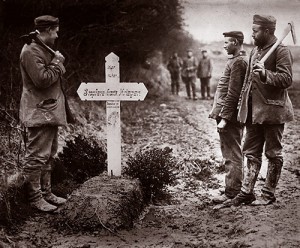The Poppy Denby Investigates series is not Christian Fiction – and was never meant to be. Some of the characters use mild swearwords, some of them have sex (although not explicit) and some of them are gay – so not what you would expect to find in so-called ‘Christian’ fiction. There are however more than a few traces of faith. Poppy is the daughter of Methodist ministers but is struggling to reconcile her own faith to the exciting new life she is leading in the Big City. She also struggles to reconcile the notion of a God of love with the horrors of the First World War. While other characters – such as the photographer Daniel – have given up on God because of it.
Yet Poppy still holds onto her faith. You will occasionally see her praying to God in difficulties and expressing her confusion and doubts. Other characters, such as Rollo and Aunt Dot, feel judged by the more puritanical expressions of Christianity and Poppy herself wonders at times if it is really a ‘sin’ to drink alcohol, wear make-up and go to jazz clubs. Delilah is a completely secular character who has never given faith a second thought – and probably never will. Then there are characters like Elizabeth who despite enduring endless hardship and disappointment still manages to hold onto the faith which sustains her. Still other characters are Jewish, and although I haven’t written one in yet, there will be Muslim characters in future books too …
For me this is an authentic cross-section of society. Faith – or the lack of it – is part and parcel of the fabric of everyday life; and that’s what I want to show in my books. But the faith of the characters is NOT the point of the story; it is simply part of their characterisation. These are historical mysteries that can be enjoyed by people of faith and no faith and everything in between.

But for now I will give the last word to Wilfred Owen who, in 1917, so poignantly struggled to hold onto his own faith in the trenches of the Western Front:
Since we believe not otherwise can kind fires burn;
Now ever suns smile true on child, or field, or fruit.
For God’s invincible spring our love is made afraid;
Therefore, not loath, we lie out here; therefore were born,
For love of God seems dying.To-night, His frost will fasten on this mud and us,
Shrivelling many hands and puckering foreheads crisp.
The burying-party, picks and shovels in their shaking grasp,
Pause over half-known faces. All their eyes are ice,
But nothing happens.
(From ‘Exposure’, Wilfred Owen, 1917 – as read by Poppy in The Jazz Files)

This is a very interesting article on faith and how you handle it in your Poppy Denby novels, Fiona. I like your eclectic approach to this subject. One thing that I find people tend to think about ‘the past’ is, that somehow, more people attended church then, people found it easier to have faith, and Christianity had a stronger hold on hearts and minds. But I believe this is, in more than one sense untrue. I suspect people struggled with faith just as much as they do now and that church attendance, if it happened more often than now, cannot be taken as a good indicator of the faith that is in people’s hearts. Additionally I have often wondered how people manage to hold onto or recover their faith after truly appalling events in their lives (as in the holocaust, for instance, and both the world wars). It all seems to point to this one truth: that faith is, in itself one of the greatest miracles of all.
Hi Sheila. I think what we were seeing in the post WWI years was the breakdown of cultural Christianity and the separation of church and state. Also, as the state’s role in people’s lives increased as a provider of education, healthcare etc, the church’s social role – as an institution – began to diminish in the Western world. As suffrage expanded to include the lower classes, the power they had to demand the government meet social needs meant that the church no longer had a clearly defined social role to play. In other words, what is the point of church, people began to ask. Faith became an issue of personal choice. That’s why the evangelical movement did so well, because it was down to the individual and God, not the individual via the church and God. In my Poppy books, the heroine is set adrift from church as an institution and needs to re-align her faith. Is it a personal faith? Is it a family faith? Is it a communal faith? And of course, as you rightly mention, what role does a God of love have to play in a world blighted by horror. The 20s were a decade where frankly God’s credibility was being challenged. It was no longer a matter of we believe because the church tells us so, it was a question of do ‘I’ believe it. Individual suffrage put political power into the hands of individuals. The question of whether to believe or not was now in their hands too.
I also wrote this article because I had received a number of comments in reviews by American evangelical Christians that the books were not what they were used to or expected. Hopefully readers can see that I am hoping to do something different with these books and so should not judge them by a ‘Christian fiction’ yardstick as that is not what I intended to write.